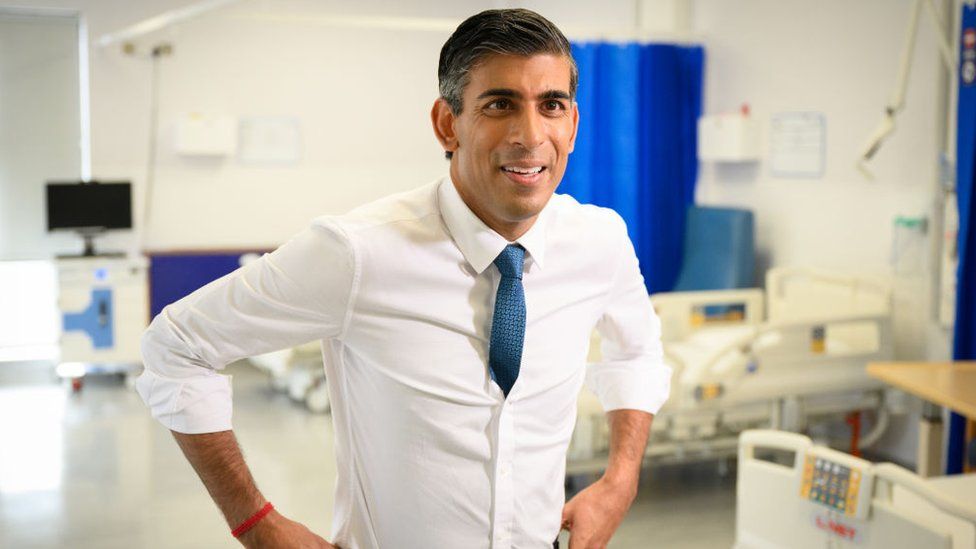Health service leaders and experts join talks with ministers as patients face winter disruption.
 Image source, Getty Images
Image source, Getty ImagesThe prime minister, health secretary and Treasury ministers are due to meet health experts to help tackle crucial challenges facing the NHS in England.
Reports have emerged of patients spending days on trolleys because of shortages of beds in some hospitals.
Rishi Sunak has promised to cut long waiting times for routine operations within two years.
But Labour says patients deserve “more than a talking shop” and the Lib Dems say it is “too little too late”.
“Health experts have been sounding the alarm for months about the crisis the NHS is facing, so why has it taken so long for Rishi Sunak and Steve Barclay to decide to listen to them?” said shadow health secretary Wes Streeting..
Senior doctors say the NHS is on a knife-edge, with long waits for emergency care, routine operations, GP appointments and care for patients when they are discharged from hospital.
High levels of flu and Covid, a wave of strike action and a cost-of-living crisis are also putting huge pressure on the health service.
On Monday, health unions have been invited to meet Health Secretary Steve Barclay to discuss pay for 2023-24 from April – but union leaders say the government must act on the current pay dispute for this year, and Monday’s talks will not stop planned strikes in January.
The all-day NHS Recovery Forum has been organised by the government and will focus on how to “share knowledge and practical solutions” across different regions of England.
Downing Street said the aim was to tackle “the most crucial challenges” faced by the health service, such as delayed discharge and emergency care.
“We want to correct the unwarranted variation in NHS performance between local areas, because no matter where you live you should be able to access quality healthcare,” No 10 said.
Representatives from the public and private sectors will attend, as well as chief executives and clinical leaders of NHS organisations, local areas and councils from across the country, plus medical and social care experts.
Amanda Pritchard, chief executive of NHS England, will also take part in the forum.
The government in England has already announced plans to roll out virtual ward beds so that more people can be treated at home, a new service to save thousands of ambulance call-outs to people who have fallen, and more funding to improve emergency care and adult social care.
More than 90 diagnostic hubs have also been opened to reduce the queues for tests, checks and scans.
Although two-year waits for routine treatment have shrunk since the pandemic, experts say there is still a mountain to climb before the numbers of patients waiting longer than a year start coming down.
More than seven million people are currently on a hospital waiting list for a non-urgent operation or treatment in England – one in eight of the population.